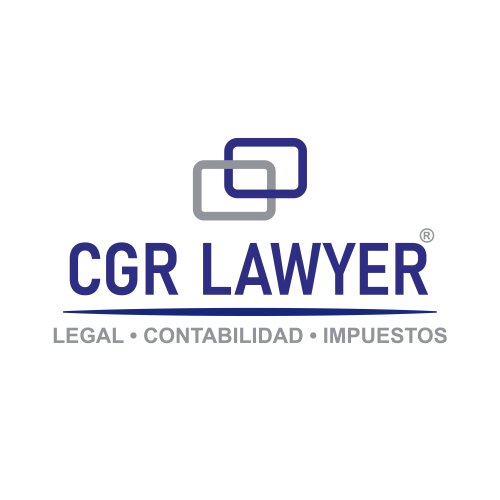Best Tax Lawyers in Dominican Republic
Share your needs with us, get contacted by law firms.
Free. Takes 2 min.
Or refine your search by selecting a city:
List of the best lawyers in Dominican Republic
About Tax Law in Dominican Republic
Tax law in the Dominican Republic is governed by a series of regulations that oversee the collection and enforcement of taxes on individuals and businesses operating within the country. The Dominican tax system is managed primarily by the Dirección General de Impuestos Internos (DGII), which is responsible for the implementation and oversight of local tax laws. The tax structure in the Dominican Republic includes income tax, value-added tax (ITBIS), property taxes, and other duties that finance public services and infrastructure. Given the complexity of the tax system, understanding your obligations and rights can be challenging without specialized knowledge.
Why You May Need a Lawyer
Engaging a lawyer in matters of tax in the Dominican Republic can be crucial for several reasons:
- Business Formation: When establishing a business, ensuring compliance with local tax obligations can facilitate smoother operations and avoid future disputes.
- Tax Disputes: If you're involved in a dispute with the tax authorities, a lawyer can help represent your interests and negotiate settlements.
- Tax Planning: Effective tax planning and optimization can help both individuals and businesses reduce their tax liabilities legally.
- Foreign Investments: Non-residents or foreign entities investing or operating in the country may need guidance to understand their tax responsibilities.
- Estate Planning: Lawyers can assist with estate planning to ensure the efficient transfer of assets and compliance with inheritance tax laws.
Local Laws Overview
The Dominican Republic's tax laws involve several key elements:
- Income Tax: Both residents and non-residents are subject to income tax, with rates varying based on income brackets.
- Value-Added Tax (ITBIS): A standard 18% VAT applies to most goods and services, with certain exemptions for basic needs.
- Property Tax: An annual property tax is levied on properties exceeding a specific value threshold.
- Corporate Tax: Corporations are taxed at a rate of 27%, with additional obligations for withholding taxes on dividends and other payments.
- Transfer Pricing: Regulations require related party transactions to adhere to the arm’s length principle, ensuring fair market practices.
Frequently Asked Questions
What is the tax year in the Dominican Republic?
The tax year in the Dominican Republic aligns with the calendar year, running from January 1st to December 31st.
What income is subject to taxation?
All income derived from Dominican sources by residents and specific types of foreign income received by residents are subject to taxation.
Are there tax deductions available for individuals?
Yes, individuals can claim deductions for certain expenses such as medical, education, and mortgage interest payments, subject to specific conditions.
How is value-added tax (ITBIS) applied?
ITBIS is applied at a rate of 18% on most goods and services, with some essential goods being exempt from this tax.
What penalties might I face for non-compliance?
Penalties for non-compliance with tax obligations can include fines, interest charges, and possible legal action. Penalties vary based on the nature and severity of the infraction.
Do I need to file a tax return if I'm self-employed?
Yes, self-employed individuals must file annual tax returns and pay income tax on earnings exceeding the non-taxable threshold.
Are there any incentives for foreign investors?
Yes, various incentives exist for foreign investors, including tax holidays and exemptions, to encourage investment in specific sectors.
How does the Dominican Republic approach tax residency?
An individual is deemed tax-resident if they spend more than 183 days per year in the country or maintain domicile in the Dominican Republic.
What is transfer pricing, and who does it affect?
Transfer pricing pertains to pricing arrangements for transactions between related parties, ensuring they comply with market norms, and it mostly affects multinational companies.
How can expatriates ensure compliance with Dominican tax laws?
Expatriates should engage with local tax professionals or lawyers to guide them through the compliance process and help avoid common pitfalls.
Additional Resources
For more information and assistance, consider the following resources:
- Dirección General de Impuestos Internos (DGII): The primary government agency overseeing tax administration.
- Superintendencia de Bancos: Offers guidance on financial regulations including taxes related to banking operations.
- Ministry of Finance: Provides updates on fiscal policies and tax reforms.
- Local and International Tax Firms: These can offer personalized advice and services to navigate the tax landscape effectively.
Next Steps
If you need legal assistance regarding tax in the Dominican Republic, consider taking the following steps:
- Research: Begin by understanding your specific tax obligations and any potential issues or needs you may have.
- Consultation: Schedule a consultation with a tax attorney or a qualified accountant for expert advice tailored to your situation.
- Document Preparation: Gather all relevant financial records, contracts, and legal documentation in preparation for any legal proceedings or consultations.
- Compliance Check: Conduct a thorough review of your tax positions to ensure compliance and identify any areas that could benefit from legal adjustment or planning.
Engaging with knowledgeable professionals can aid in navigating the complexities of the Dominican tax system effectively and efficiently.
Lawzana helps you find the best lawyers and law firms in Dominican Republic through a curated and pre-screened list of qualified legal professionals. Our platform offers rankings and detailed profiles of attorneys and law firms, allowing you to compare based on practice areas, including Tax, experience, and client feedback.
Each profile includes a description of the firm's areas of practice, client reviews, team members and partners, year of establishment, spoken languages, office locations, contact information, social media presence, and any published articles or resources. Most firms on our platform speak English and are experienced in both local and international legal matters.
Get a quote from top-rated law firms in Dominican Republic — quickly, securely, and without unnecessary hassle.
Disclaimer:
The information provided on this page is for general informational purposes only and does not constitute legal advice. While we strive to ensure the accuracy and relevance of the content, legal information may change over time, and interpretations of the law can vary. You should always consult with a qualified legal professional for advice specific to your situation.
We disclaim all liability for actions taken or not taken based on the content of this page. If you believe any information is incorrect or outdated, please contact us, and we will review and update it where appropriate.
Browse tax law firms by city in Dominican Republic
Refine your search by selecting a city.
















